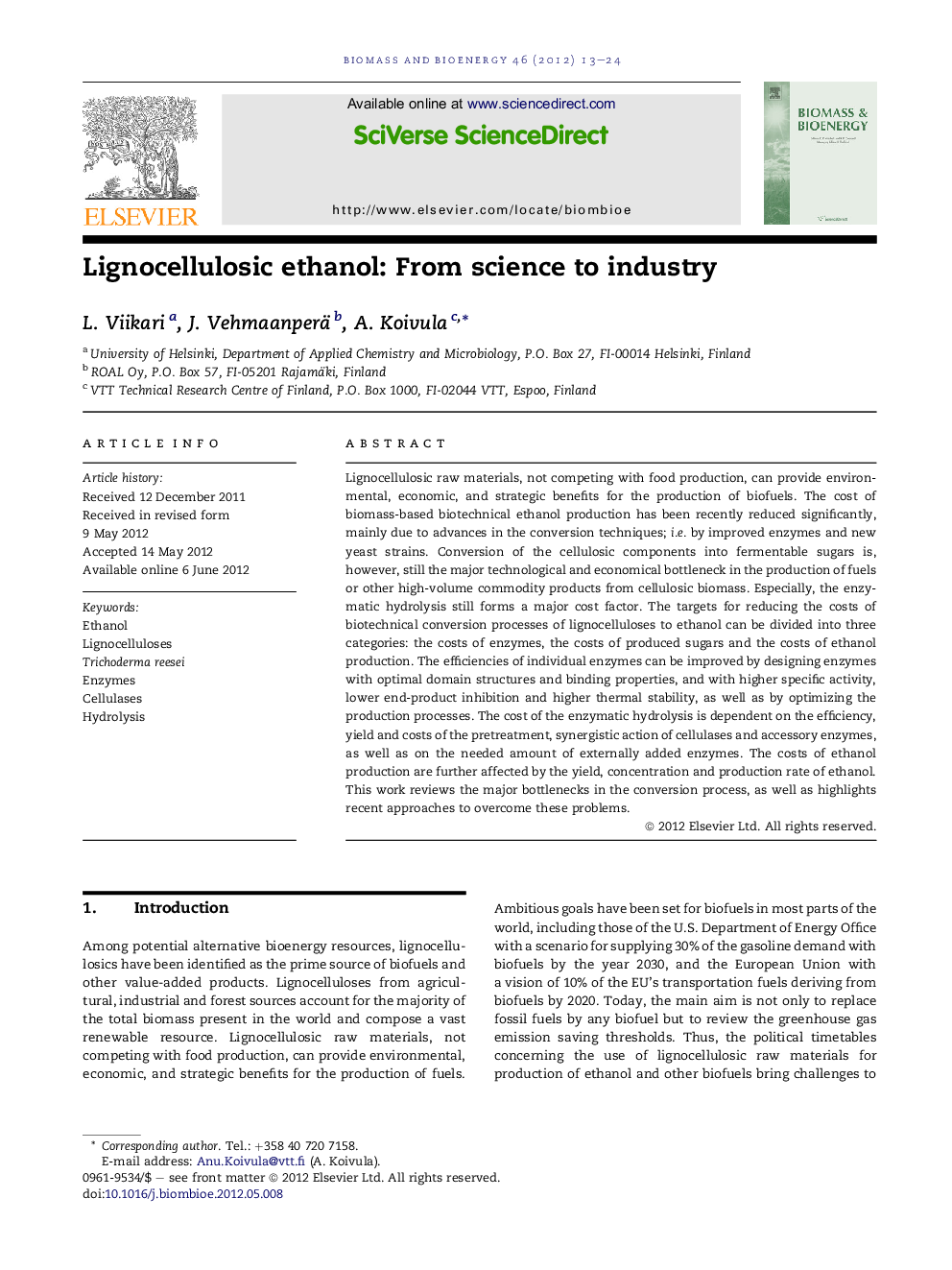| Article ID | Journal | Published Year | Pages | File Type |
|---|---|---|---|---|
| 677136 | Biomass and Bioenergy | 2012 | 12 Pages |
Lignocellulosic raw materials, not competing with food production, can provide environmental, economic, and strategic benefits for the production of biofuels. The cost of biomass-based biotechnical ethanol production has been recently reduced significantly, mainly due to advances in the conversion techniques; i.e. by improved enzymes and new yeast strains. Conversion of the cellulosic components into fermentable sugars is, however, still the major technological and economical bottleneck in the production of fuels or other high-volume commodity products from cellulosic biomass. Especially, the enzymatic hydrolysis still forms a major cost factor. The targets for reducing the costs of biotechnical conversion processes of lignocelluloses to ethanol can be divided into three categories: the costs of enzymes, the costs of produced sugars and the costs of ethanol production. The efficiencies of individual enzymes can be improved by designing enzymes with optimal domain structures and binding properties, and with higher specific activity, lower end-product inhibition and higher thermal stability, as well as by optimizing the production processes. The cost of the enzymatic hydrolysis is dependent on the efficiency, yield and costs of the pretreatment, synergistic action of cellulases and accessory enzymes, as well as on the needed amount of externally added enzymes. The costs of ethanol production are further affected by the yield, concentration and production rate of ethanol. This work reviews the major bottlenecks in the conversion process, as well as highlights recent approaches to overcome these problems.
► Extensive review on the developments of lignocelluloses hydrolysis. ► Review on developments of novel cellulases. ► New solutions to improve the enzymatic hydrolysis. ► Recent achievements on various process concepts.
